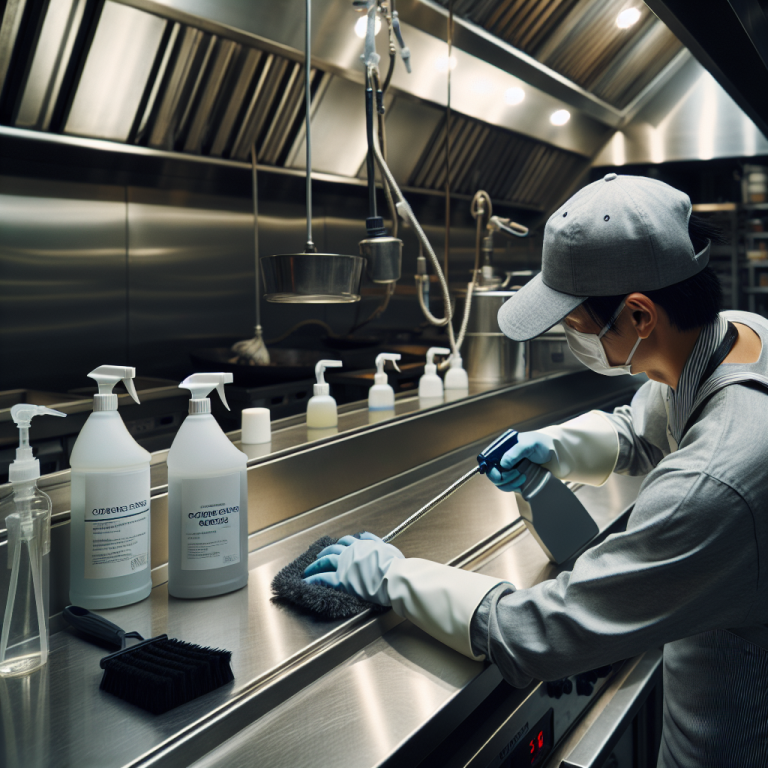Mobile Hood Cleaning Guide for Catering Businesses Everywhere
Introduction to Hood Cleaning for Catering: A Mobile Guide
Catering companies often face a unique set of challenges when it comes to maintaining clean and functional kitchen environments. One of the most critical aspects of maintaining these mobile kitchens is ensuring that the hoods and exhaust systems are clean and safe. Whether you’re setting up shop in a bustling city like Toms River, NJ, or cruising through various locations across New Jersey, proper hood cleaning is essential for the health and safety of your operations.
The Importance of Hood Cleaning in Mobile Catering
Operating a mobile catering business means that you are constantly on the move from one event to another. This mobility enhances the complexity of managing essential aspects such as hood cleaning. Here’s why hood cleaning is vital for catering businesses:
- Fire Safety: Grease accumulation in exhaust hoods significantly increases the risk of fire.
- Health Compliance: Meets health and safety regulations to avoid costly violations or shutdowns.
- Efficient Ventilation: Ensures that your cooking area remains smoke-free and adequately ventilated.
- Prolonged Equipment Life: Regular cleaning prevents damage, leading to longer-lasting kitchen equipment.
Challenges Specific to Mobile Catering Hood Cleaning
Unlike stationary restaurants, catering businesses that move from one location to another face a variety of unique challenges:
- Difficulty in setting up permanent cleaning schedules.
- Variation in operating conditions affecting the amount of grease and grime buildup.
- Need for flexible yet stringent cleaning protocols to adapt to different locations and events.
Step-by-Step Guide to Mobile Catering Hood Cleaning
While businesses in permanent locations can rely on scheduled professional cleaning, mobile catering setups require a more practical approach. Here’s a step-by-step guide to effective restaurant hood cleaning for mobile caterers:
Step 1: Assess the Condition of Your Hood and Ventilation System
Before diving into the cleaning process, perform a thorough inspection of your hood and exhaust system. Identify areas with heavy grease accumulation and take note of any damage or wear that may need professional attention.
Step 2: Gather Necessary Cleaning Supplies
You’ll need a variety of cleaning tools and supplies:
- Degreasing agents
- Scrub brushes and pads
- Protective gloves and eyewear
- Towels or rags
- Hot water and a high-pressure hose
Step 3: Disconnect Electrical Appliances and Cover Sensitive Areas
Ensure that electrical appliances are disconnected to avoid any accidental mishaps. Cover any sensitive areas like exposed controls or wiring to protect them from water or cleaning agents.
Step 4: Apply Degreaser
Generously apply a commercial-grade degreaser to the interior and exterior surfaces of the hood, as well as the exhaust filters. Allow the degreaser to sit for the recommended time to break down the grease.
Step 5: Scrub and Rinse
Using scrub brushes and pads, thoroughly scrub all surfaces. Rinse with hot water, using a high-pressure hose if needed, to remove any remaining grease and cleaning agents.
Step 6: Dry and Reassemble
After rinsing, wipe down all surfaces with clean towels or rags. Allow the parts to air dry completely before reassembling the hood and ventilation system.
Best Practices for Maintaining Clean Hoods
Regular cleaning is essential, but there are additional practices that mobile caterers can adopt to maintain a clean and safe kitchen hood:
- Frequent Inspections: Regular checks can help identify issues before they become significant problems.
- Adequate Employee Training: Ensure that all staff members understand the importance of hood cleaning and know how to perform basic maintenance tasks.
- Use of Quality Filters: Invest in high-quality filters that can effectively trap grease and contaminants.
- Professional Cleaning Schedule: Plan for periodic professional cleaning services, especially for challenging components of the hood and exhaust systems.
Choosing the Right Professional Hood Cleaning Service
While DIY cleaning is necessary, there will be times when professional services are a must. Selecting the right service provider is crucial for maintaining your mobile kitchen’s safety and compliance:
- Experience: Choose a provider with extensive experience in commercial kitchen hood cleaning.
- References: Look for reviews or ask for references to ensure quality service.
- Compliance: Ensure the service provider adheres to local laws and regulations.
- Flexibility: You need a company that can offer flexible scheduling to meet your mobile business needs.
Conclusion
Running a mobile catering business in varied locations demands meticulous attention to cleanliness and safety. Ensuring your hood and exhaust systems are spotless is a non-negotiable part of this effort. By following the guidelines and best practices laid out in this guide, you can maintain an efficient, compliant, and safe kitchen environment no matter where your business takes you across New Jersey. Jersey Hood Cleaning offers specialized services to meet these unique needs, providing expert care and flexible solutions tailored to mobile catering businesses.







